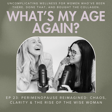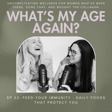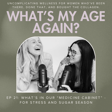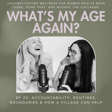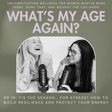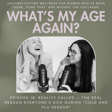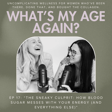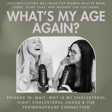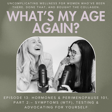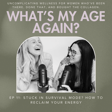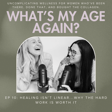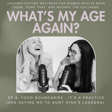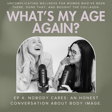
Ep 12: Hormones & Perimenopause 101, Part 1: Understanding Your Cycle and What in the HECK is Really Happening
In this episode, we’re going back to the basics of our menstrual cycle. Think of it as “Hormones 101” - because once we understand the shifts and what's actually happening with our hormones, we can start connecting the dots, managing our symptoms, and advocating for better care.
Here’s what we dive into:
- The 4 phases of a typical menstrual cycle (and what’s actually going on in each one)
- How hormones like estrogen and progesterone start to shift in perimenopause
- Why symptoms like fatigue, sleep struggles, and anxiety can feel so unpredictable
- The domino effects on other hormones like thyroid, insulin, and cortisol
- Our own personal experiences with cycle changes (and some laughs along the way)
- The importance of tracking your cycle early
By the end of this episode, you’ll feel more empowered to recognize what’s happening in your own body and more prepared to bring the right questions into your doctor’s office.
Tanya’s favourite cycle tracking app: Clue helloclue.com
Where to find us:
IG @whatsmyageagain.podcast or email us at: wmaapod@gmail.com
Where to find Tanya:
IG @tlcholistic / FB @tlcholistic
Book with Tanya: https://tlcholistic.janeapp.com/locations/tlc-holistic
Join the TLC Community: https://www.patreon.com/tlcholistic
Where to find Kim:
IG @kimdesmarais.nutrition /FB @KimDesmarais
Book with Kim: Complimentary Connect Call
